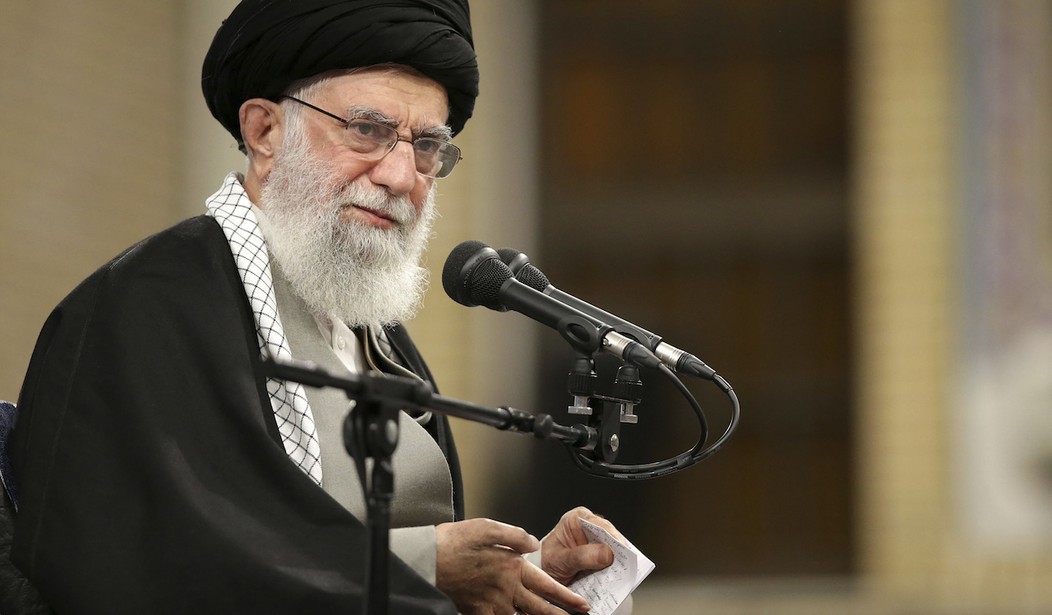Last week, a former Iranian judiciary official charged with war crimes in Iran testified in a Swedish court. The first person to date to face trial for the horrific 1988 massacre, Hamid Noury’s testimony offered revelations that laid bare Tehran’s vulnerabilities and revealed important insights into the regime’s domestic affairs.
Noury, who is accused of participation in the massacre of more than 30,000 political prisoners in Iran in 1988, 90 percent of whom were members of a singular opposition movement – was arrested in Sweden in 2019.
In heated exchanges with confused prosecutors, the defendant doggedly refused to speak the name “People's Mojahedin” to refer to his victims – members of Iran’s principal democratic opposition, the People's Mojahedin Organization of Iran (PMOI), known around the world as the Mujahedin-e Khalqor, MEK.
Noury’s unwillingness to identify the affiliation of those he reportedly tortured and killed in an international court may have puzzled casual regime observers, but the refusal was hardly lost on those that follow Iran closely.
As the defendant explained in sworn testimony, even speaking the MEK’s official name could result in an Iranian’s arrest and prosecution. And so, to the visible astonishment of the trial judge and puzzled onlookers, the defendant – charged with war crimes and murder – spent a considerable portion of his testimony unpacking exactly why he was so afraid to even utter the name ‘MEK’ in his own defense.
The historical context is important.
The 1988 massacre was rooted in both the MEK’s politics and its rejection of Islamic fundamentalism as a religious ideology. Since 1979, the organization has advocated a democratic and secular republic, putting it at odds with the totalitarian state’s clerical rulers. Compounding the trouble for the mullahs was the fact that the MEK’s democratic aspirations were built on the canons of Islam, the very religion the ayatollahs usurped to monopolize political power.
Recommended
Acknowledging that MEK dissidents were genuine Muslims would have undermined the mullahs’ reactionary reading of Islam. As such, speaking the name “Mojahedin” became an unforgivable crime against the state. And doing so was deemed an act of legitimization.
To subjugate and smear the opposition movement, the regime’s first Supreme Leader, Ali Khomeini, coined the pejorative name “Monafeqin” (translated as hypocrites) as the preferred moniker for the dissidents.
Inside the regime’s prisons, Noury and his dissolute counterparts tortured political dissidents that resisted the ayatollah’s consolidation of power and insisted they call the MEK “hypocrites” or face death. The prisoners, some as young as 18, refused and many gave their lives in the hopes their political cause would endure.
Outside prisons, to undermine the MEK’s support amongst the masses, the theocracy launched a demonization campaign to suppress the movement’s growing support.
But when torture and propaganda failed, Khomeini issued a fatwa – a religious edict – to eradicate all MEK sympathizers. In the summer of 1988, thousands of political prisoners were asked if they remained “steadfast” in their support of the MEK. An affirmative answer led to immediate execution.
For the survivors of the 1988 massacre, the name Mojahedin therefore symbolizes a trove of enduring memories – an abiding commitment to perseverance, honor, and resistance to tyranny.
Based on the Swedish prosecutors’ indictment, Noury is believed to have led hundreds of prisoners to their deaths in Gohardasht Prison where he allegedly tortured and killed political prisoners.
That even an individual responsible for committing heinous acts at the request of his clerical masters would be concerned with legitimizing the MEK when presented with opportunities to do so outside of Iran’s jurisdiction provides a glimpse of the contemporary angst facing those inside Iran’s borders.
“In Iran,” he told the court, “we don't have anything by the name of People's Mojahedin Organization of Iran. If anyone in Iran uses this term they would be arrested. The Iranian judiciary is extremely serious about this. During the interrogations (by Swedish authorities), I used this term a few times and now I am terrified. Fear has overwhelmed my entire being.”
In parallel, Noury’s repetition of stale propaganda directed at the dissidents – namely that “people know them as ‘the hypocrites,’ not ‘MEK,’” that the group “has no support inside Iran,” and that its members are “prisoners” of the organization in Albania – are signs that Tehran’s Ministry of Intelligence (MOIS) remains obsessed with the group. The tired claims are frequently parroted by the regime’s mouthpieces and paid hands.
Ironically, Noury went off script and got his own wires crossed in several instances as when he repeated the false claim that the MEK’s cooperation with Iraq rendered it unpopular in Iran but followed with an acknowledgement that the MEK’s fight against the theocracy was entirely independent of the Iraqi government. It was similarly unclear why, if the MEK is indeed an “unpopular cult,” speaking the group’s name in a Swedish court should elicit such worry.
That MEK activists inside Iran are widely credited with spearheading continued resistance to the regime’s civil and political repression and echoing calls for democracy – thereby risking torture, persecution, and death – illustrates the dissident group’s continued bravery.
Continued political unrest in Iran also demonstrates why Tehran is right to be fearful of the organization.
Despite decades of brutal suppression, the MEK remains unyielding in their calls for a free Iran. By speaking the name of those that gave their lives for freedom, U.S. officials can close ranks with Tehran’s democratic opposition and give hope to those on the Iranian street that the future can be brighter than the past.
Prof. Ivan Sascha Sheehan is the executive director of the School of Public and International Affairs at the University of Baltimore. Opinions expressed are his own. Follow him on Twitter @ProfSheehan.
























Join the conversation as a VIP Member